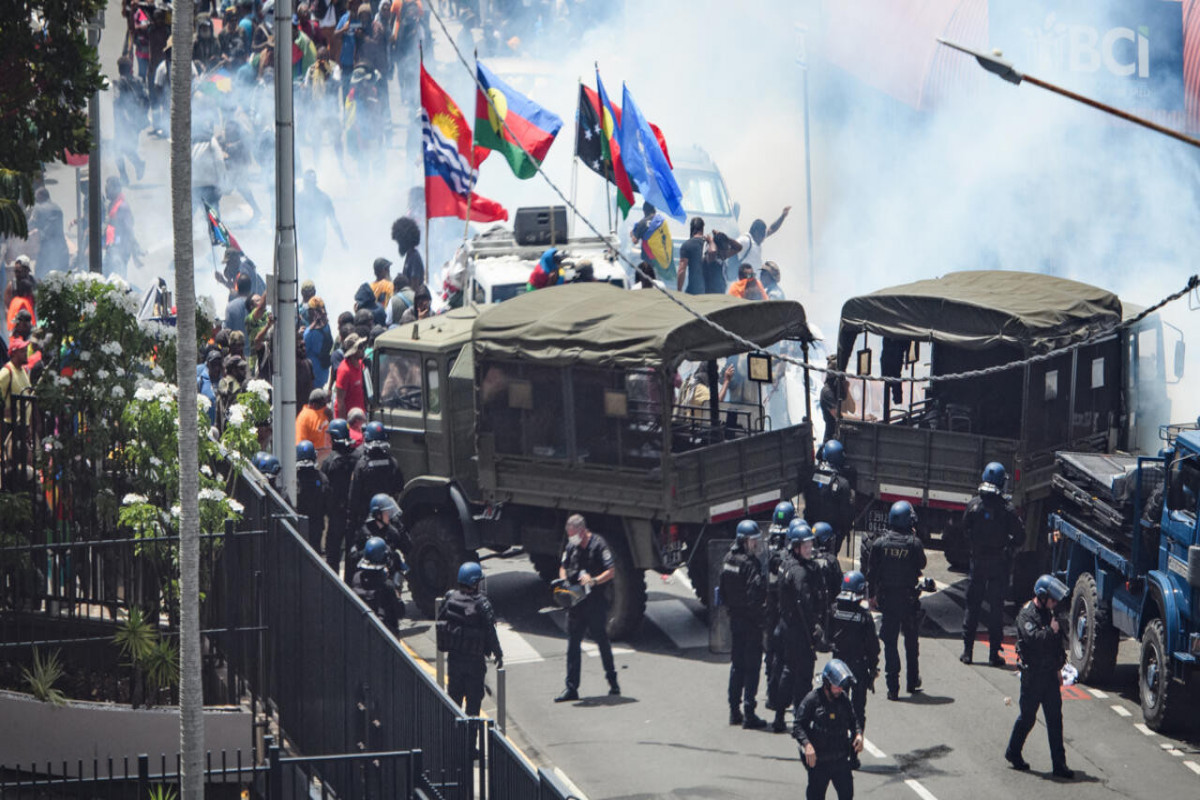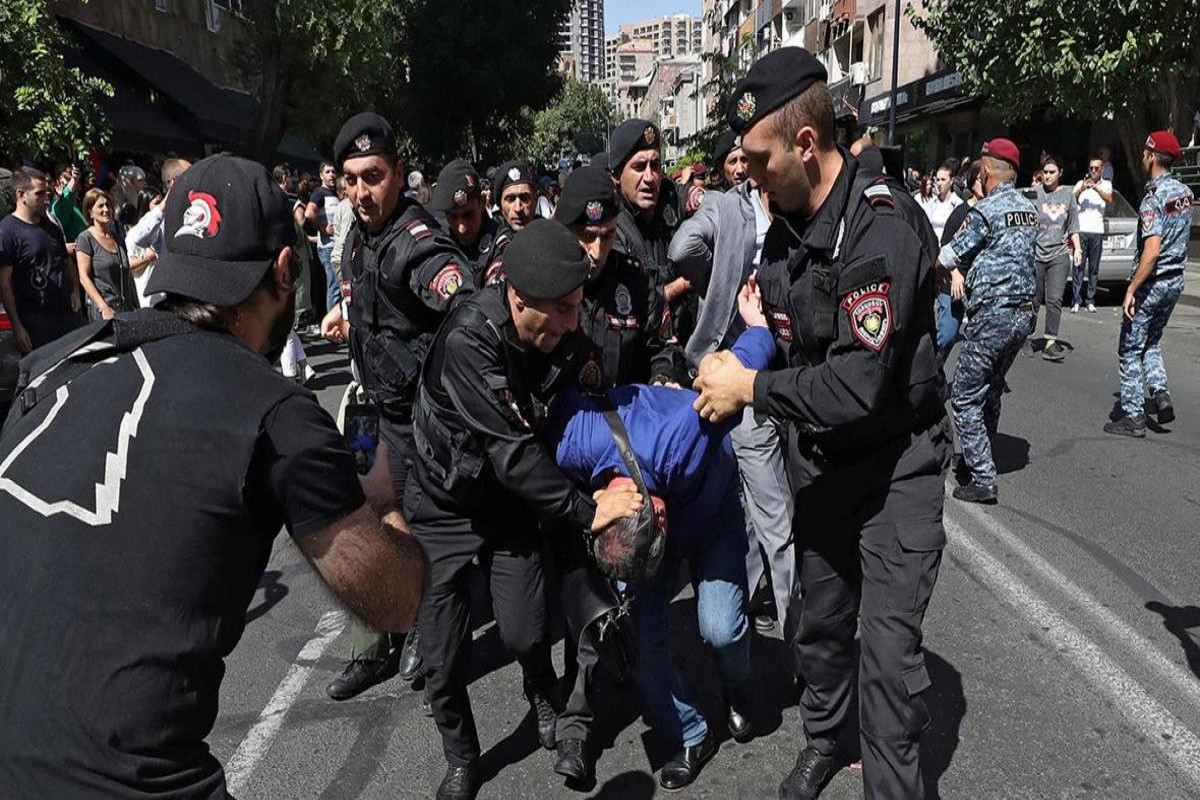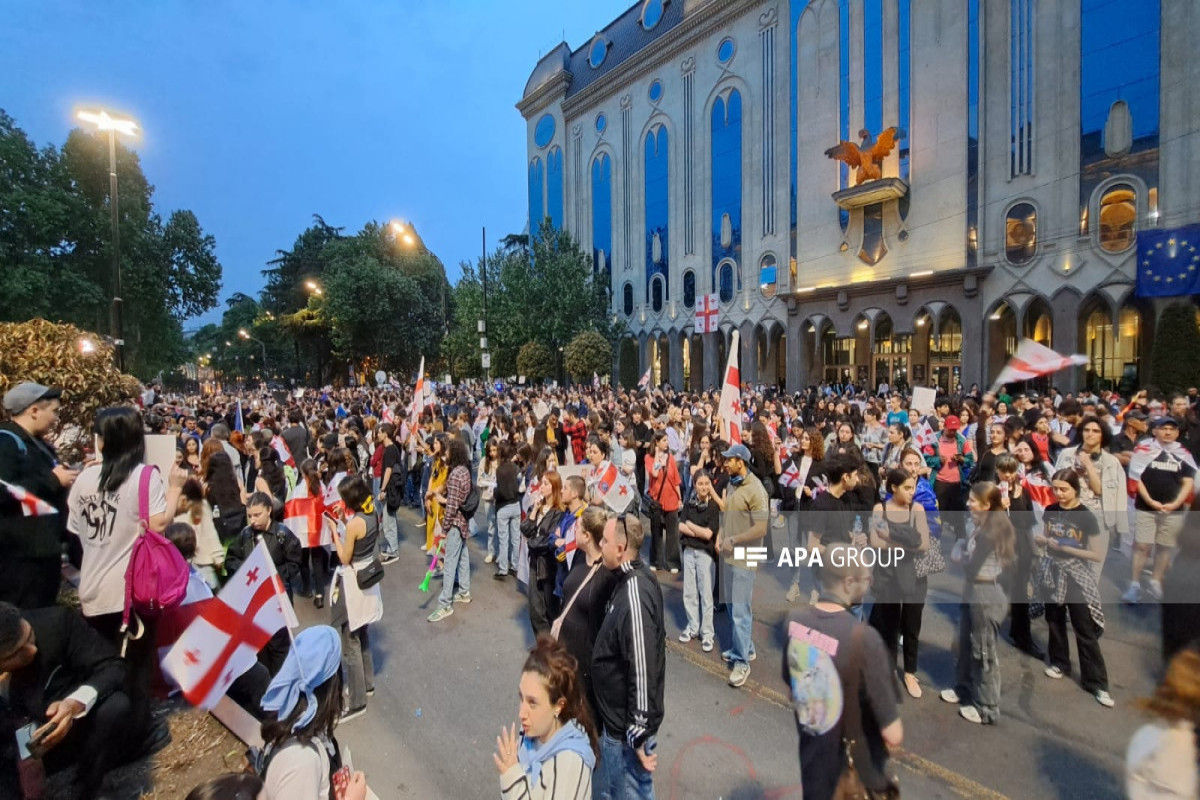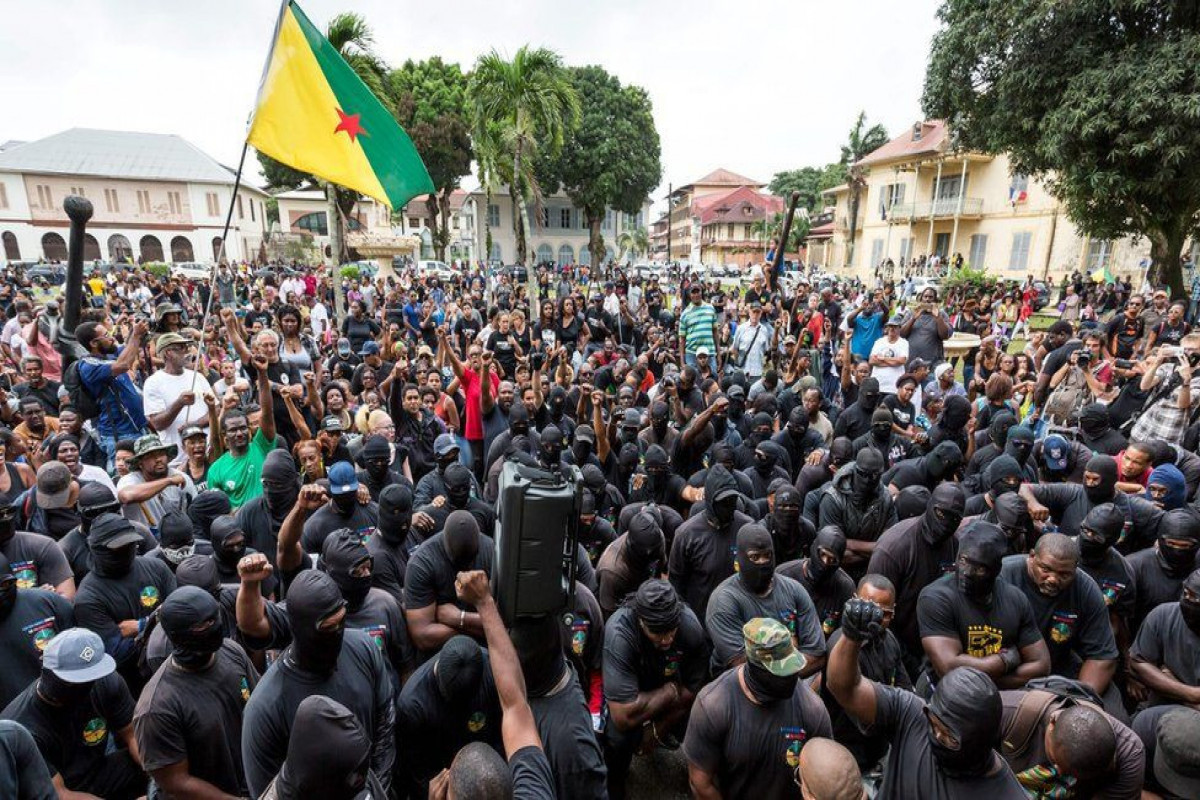Turkey, Armenia and Azerbaijan: Where next? – ANALYTICS

The Turkish-Armenian thaw has the potential to seriously disturb the political dynamics of the South Caucasus. Both Armenian President Serzh Sarkisian and Turkish Prime Minister Recep Tayyip Erdogan have made serious gambles on the thaw, and the consequences may be unpredictable.
President Sarkisian’s challenge is domestic. Although the diaspora continue to oppose reconciliation, the more serious risk comes from the political opposition: ex-President Levon Ter-Petrosian’s Armenian National Congress (ANC), the nationalist Armenian Revolutionary Federation (ARF), and the Heritage Party.
The opposition cannot challenge the ratification in parliament, since the ruling coalition dominates the legislature. Any challenge would have to be made, as so often in Armenian politics, on the streets. Anything could happen in such a volatile context, and a violent revolution is not unforeseeable if a cycle of escalation begins.
However, the government has calculated that the mutual distrust between the three opposition parties will prevent them from unifying to challenge the protocols. The ARF loathes Levon Ter-Petrosian, who banned them in 1994 during his presidency: a speaker at a recent ARF rally spent much of his speech attacking Mr Ter-Petrosian rather than the government (RFE/RL, October 16). Both the ARF and Heritage fear that Mr Ter-Petrosian’s opposition to the government is tactical. Despite recent calls by the ANC for President Sarkisian to resign, the other parties suspect that the ex-President supports the thaw and simply seeks to gain power (Tert.am, October 14).
The ARF, apparently playing a long game, are not calling for the President’s resignation – yet. They are calling for a popular movement to develop, allying with Heritage, and are insisting that their struggle will be fought through constitutional and legal means. This seems to be a tactical move to prevent alienating ordinary Armenians through revolutionary rhetoric.
Unless the ARF-Heritage movement can ally with the popular Mr Ter-Petrosian, they will not be able to generate sufficient support for a broad anti-government movement. Factional infighting will allow the government to sit tight and push the protocols through parliament. However, opposition to the protocols will grow as time passes – and there is no guarantee that they will be ratified soon.
This is because of Turkey’s challenge: reconciling public statements about the need for progress on the Nagorno-Karabakh conflict with its clear desire to ratify the protocols. The ruling AKP party had apparently gambled that they could force concessions from Armenia in the run-up to the signing ceremony. The linkage of the Turkish-Armenian thaw and progress on Nagorno-Karabakh had been explicitly made by the Turkish government, which insisted that one could not take place without the other (Today.az, October 12). But time is running out, and there has been no agreement between Azerbaijan and Armenia.
Until an agreement is made, ratifying the protocols would be seen by Azerbaijan, and by many Turks, as a serious betrayal. Intensive lobbying by Azerbaijani political groups in Turkey is creating serious momentum against ratification. President Sargsyan seems to be betting that under the pressure from the West (US President Obama already had a lengthy phone call with President Gul and sent an invitation to Prime Minister Erdogan to visit US on Oct. 29, Today’s Zaman) Turkey will be obliged to ratify the protocols regardless of progress on Nagorno-Karabakh.
Azerbaijan is making its fury increasingly clear. An ominous warning from the Foreign Ministry that the signing “calls into question the architecture of regional peace and security†was followed by a statement from President Aliyev that “the war is not over yet†and that “no problem in the region – political, diplomatic, economic, energy, transport – can be solved without Azerbaijan’s participation†(APA, October 17).
The significance of this statement was made clear in the same cabinet meeting, when President Aliyev launched a scathing attack on Turkey’s “unacceptable†price demands for the sale and transit of Azerbaijan’s gas (RFE/RL, October 17). He said that selling gas to Turkey at a third of the market price was illogical, and threatened to prioritise gas sales to Russia. Just days earlier, Azerbaijan signed a deal with Russia’s Gazprom (UPI, October 16). The contract formalised agreements made earlier in the year and which envisions the sale of 500 million m3 of Azerbaijan’s gas to Gazprom in 2010.
Clearly, Baku is threatening to cease cooperating with Turkey on oil and gas transit, crippling its plans to become a regional energy hub. This could also be a fatal blow to the Nabucco project to bring Eurasian gas to the heart of Europe. Bypassing Turkey, Azerbaijan could send its gas to Russia, to Georgia’s Black Sea ports (and on to Europe), or to Iran, as was contemplated by President Aliyev in the same meeting. Any or all of these options would reduce the need for Nabucco.
More significantly, they would reduce Azerbaijan’s ties to the West. The Georgian option, the only route which would continue to link Baku with Europe, is impractical and costly. Sending gas to either Russia or Iran would tie Azerbaijan into a close relationship with those states. In particular, Moscow would be eager to reassert influence in the South Caucasus as its alliance with Yerevan loses focus. The EU, and the US, would lose traction in Azerbaijan even as they gain it in Armenia. For the purposes of energy security and geopolitics, this would be a questionable trade.
The next few months will be fraught with difficulties, as regional states attempt to untangle the Caucasian knot. If Turkey ratifies the protocols without progress on Nagorno-Karabakh, Azerbaijan will almost certainly suspend their alliance. Military tensions between Armenia and Azerbaijan will rise. Nabucco will become even less likely and Western influence in the Caspian region will decrease even further.
Political
 ANALYSIS'>
ANALYSIS'>
France's neo-colonial policy is cracking - protests in New Caledonia are beginning of end-ANALYSIS

Selective democracy: Why does the West react differently to police violence in Tbilisi and Yerevan? -ANALYTICS
 ANALYTICS'>
ANALYTICS'>
Georgia is on the verge of chaos again - Will the West achieve the next 'color revolution'?"-ANALYTICS

Neocolonial policy of France on the edge of collapse- French Guiana is also on the path to liberating itself from colonization-ANALYSIS
NEWS FEED
National flag at Iranian embassy in Azerbaijan was lowered to half-mast
Delegation of Latvian Parliament visit grave of National Leader of Azerbaijan and Alley of Martyrs -PHOTO
Minister: Increase observed in transportation volume managed through Middle Corridor
Azerbaijan's MFA and Foreign Minister conveyed their condolences to Iran
Bodies of Iranian president and others killed in helicopter crash sent to Tabriz, the search is over-VIDEO
Azerbaijani President conveyed his condolences to the Supreme Leader of Iran
Mohammad Mokhber to exercise powers of president of Iran
Natural gas prices surge at NYMEX
Indonesia minister says Musk to consider offer to build EV battery plant in country
Iranian media: Iran's President and his staff died in a helicopter crash
Iran RCS: Remains of the helicopter found, but no signs of alive passengers
Reuters: Helicopter of the President of Iran, Ibrahim Raisi, was completely burnt as a result of the accident -VIDEO
Wreckage of helicopter carrying Iran’s president located as rescue efforts continue
Türkiye’s Akinci UAV identifies source of heat suspected to be crash site of Iranian president’s helicopter-VIDEO
DPRK forced to take measures to increase nuclear deterrence after US test — statement
Rasisi’s helicopter passenger twice called to say he was feeling bad — senior diplomat
MES: Azerbaijan is ready to send 40 rescuers to search-rescue operation in Iran
Saudi king diagnosed with lung inflammation
Location of Iranian president's crashed helicopter discovered
Türkiye sending night vision search helicopter, 32 rescuers, 6 vehicles to help Iran find president's crashed copter
Fenerbahçe wins derby against Galatasaray
Presidents of Azerbaijan and Iran met in the presence of delegations-PHOTO-UPDATED-1
Iran asks EU for help in finding missing president
Türkiye monitoring developments in Iranian president's helicopter crash
President of Iran: "We were one of the first countries to explicitly state that Karabakh is the territory of Azerbaijan"
Seyyed Ebrahim Raisi: "The most important issue for us is the interests of our countries"
Manchester City win record fourth-successive Premier League title
President Ilham Aliyev, President Ebrahim Raisi attended commissioning ceremony of Khudafarin hydroelectric complex, opening ceremony of Giz Galasi hydroelectric complex-PHOTO-UPDATED-1
Search operation underway to find Iranian President's helicopter-VIDEO-UPDATED-1
Azerbaijan, as friendly and brotherly nation, is ready to provide all necessary support to Iran, says MFA
Azerbaijan ready to provide assistance regarding helicopter incident involving President of Iran - President Ilham Aliyev
Lives of Raisi, Iranian FM at risk after helicopter crash - Reuters
Several injured as passenger buses collide in Baku-PHOTO
Chairman of the Latvian Parliament visited Azerbaijan's Shusha
New page opens in Iranian-Azerbaijani relations - ambassador
Seyyed Ebrahim Raisi: Iran's relationship with Azerbaijan is more than a relationship with a neighbor
President Ilham Aliyev: Iran-Azerbaijan unity and friendship is unshakable
President of Azerbaijan: I do hope that Armenia contributes to regional cooperation, not damage it, by conducting the right policy
President of Azerbaijan: I do hope that Armenia contributes to regional cooperation, not damage it, by conducting the right policy
President: The interference of non-regional countries in our affairs is unacceptable
President Ilham Aliyev: We welcome Iran's support regarding peace agreement between Azerbaijan and Armenia
President: Creation of “green energy” sources in Karabakh, East Zangezur, and Nakhchivan will benefit the entire region
President of Azerbaijan: We have major plans in the field of energy
President Ilham Aliyev: Iranian-Azerbaijani friendship and brotherhood are an important factor for the stability of the region
Interstate relations between Iran and Azerbaijan reached the highest
President Ilham Aliyev: The opening of the "Giz Galasi" hydroelectric complex and the commissioning of the “Khudafarin” hydroelectric complex are historic events
Speaker of Latvian Parliament arrives in Fuzuli-PHOTO
President of Iran: This is a very successful meeting for the two nations"
Houthis attack tanker in Red Sea
House explosion in Türkiye injures seven

